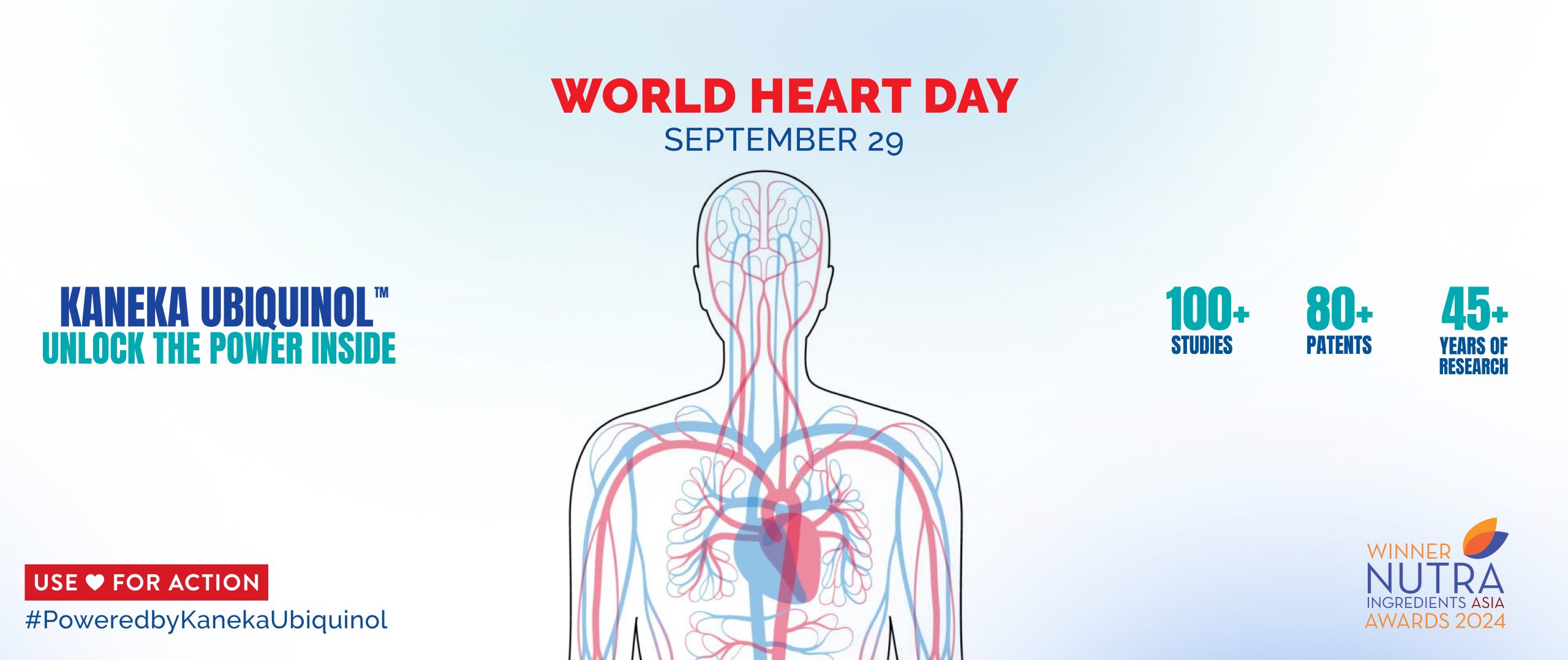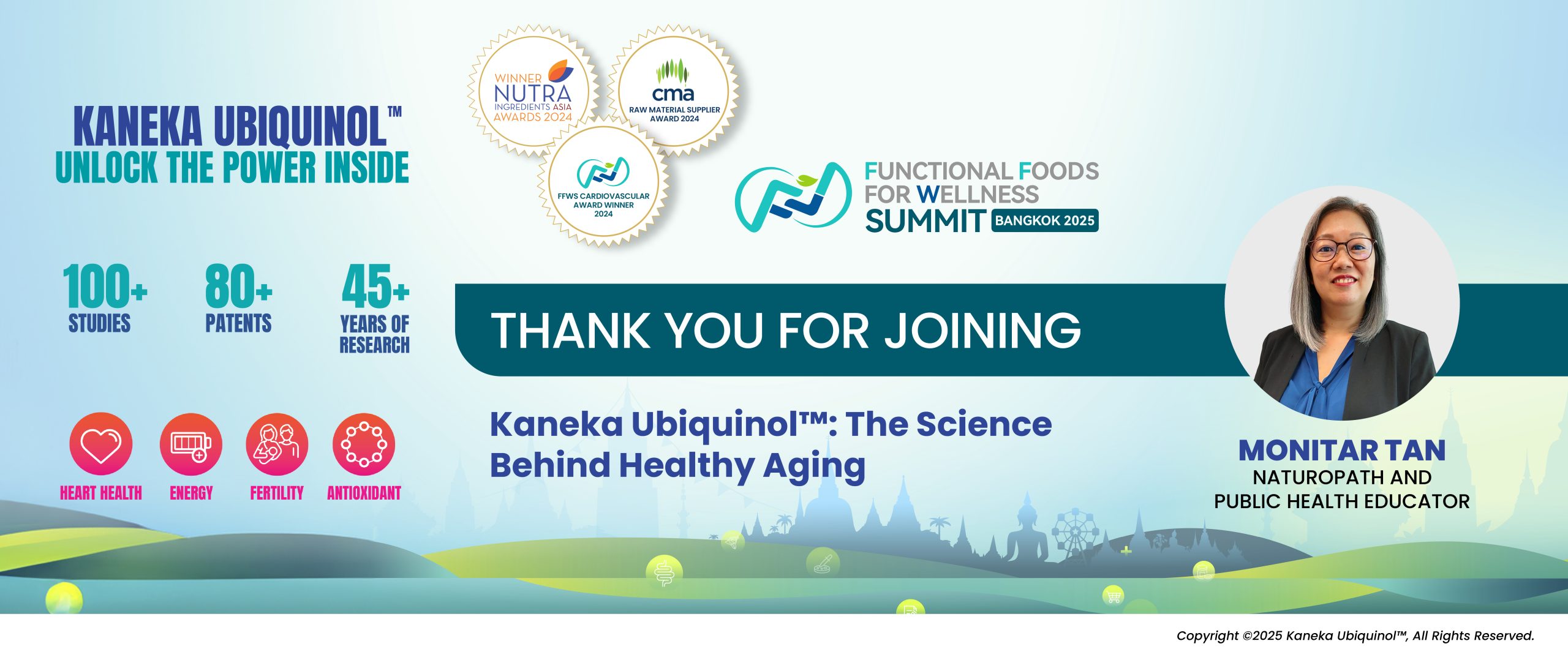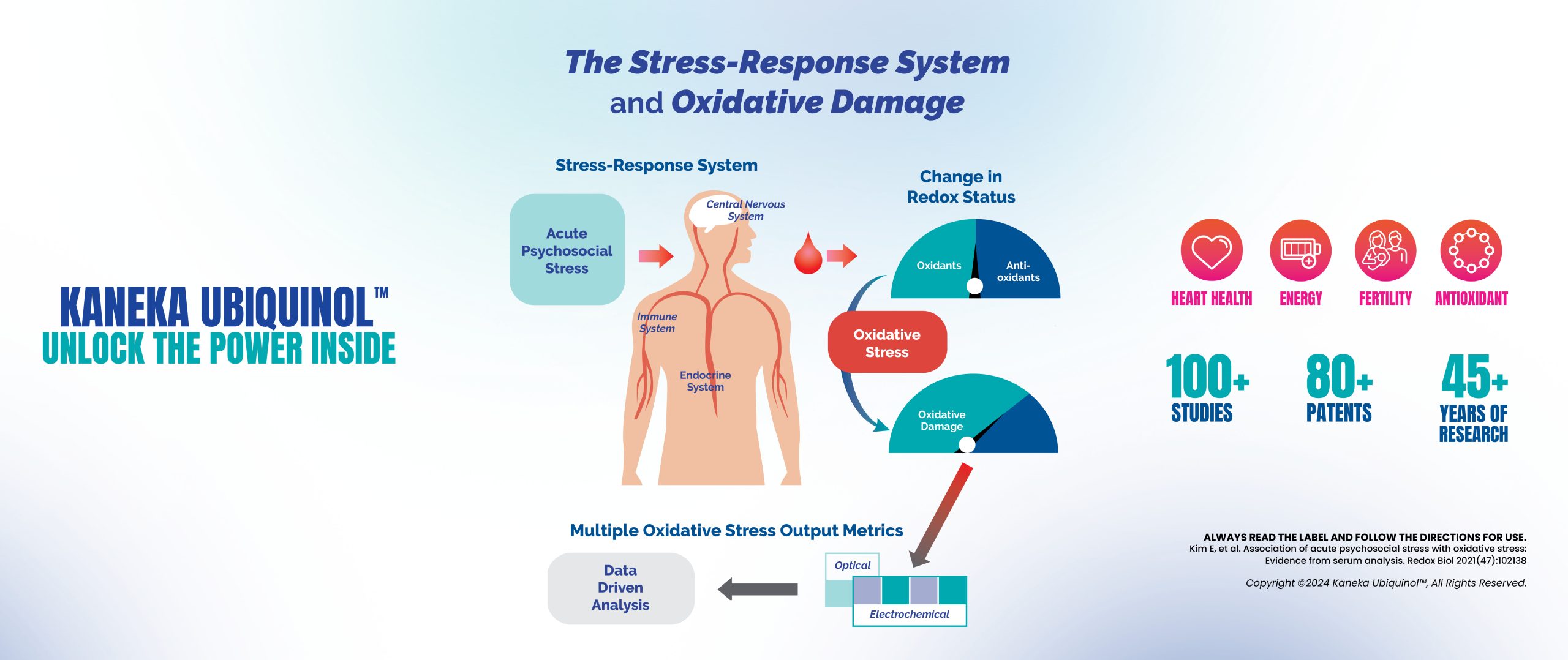Ageing Backwards: Why Ubiquinol is the Antioxidant of Note
Dec 2018Recent Article

It may not be possible to physically turn back the hands of time, but there are ways you can help Mother Nature keep you looking younger, for longer.
Did you know how you age? It’s all about free radicals and your body’s ability to protect itself against oxidative stress and inflammation.
Everybody has Coenzyme Q10 (CoQ10) in each of its cells, an antioxidant vital for the functioning of mitochondria which supports energy production in our bodies.[i] As we age, our CoQ10 levels reduce, lowering our ability to fight against inflammation, illness and disease, which is why we need to look at our diet and supplementation to increase our levels.
Ubiquinol, the active form of Coenzyme Q10 (CoQ10), may help to power your energy production and protect the body against oxidative stress and inflammation. Ubiquinol is an active form of the naturally-occurring antioxidant CoQ10, but it’s more easily absorbed in the body than CoQ10. If you’re over the age of 25, you should be including an Ubiquinol supplement into your daily health regime, as your body doesn’t convert CoQ10 into Ubiquinol as easily as you age.
It’s good for your heart and reducing your cholesterol levels too.[ii] And if you’re finding that your muscles are beginning to ache more than usual, research has shown that Ubiquinol can help reduce muscle pain by up to 54 per cent and muscle weakness by 44 per cent.[iii]
Don’t forget to include Ubiquinol-rich foods in your diet to help improve your antioxidant levels. [iv] These include meat, poultry, fish, broccoli, citrus fruits, avocado, pistachios, peanuts, sesame seeds and parsley.
While a healthy diet is always a must, taking Ubiquinol is an efficient way to help restore healthy levels in the body and support optimal energy levels and help to reduce levels of oxidative stress.
[i] https://www.ncbi.nlm.nih.gov/pubmed/24996614
[ii] https://www.escardio.org/The-ESC/Press-Office/Press-releases/First-drug-to-improve-heart-failure-mortality-in-over-a-decade
[iii]https://www.ncbi.nlm.nih.gov/pubmed/23183519
You can share this by:
Keep up-to-date with Ubiquinol News
Ubiquinol Headlines
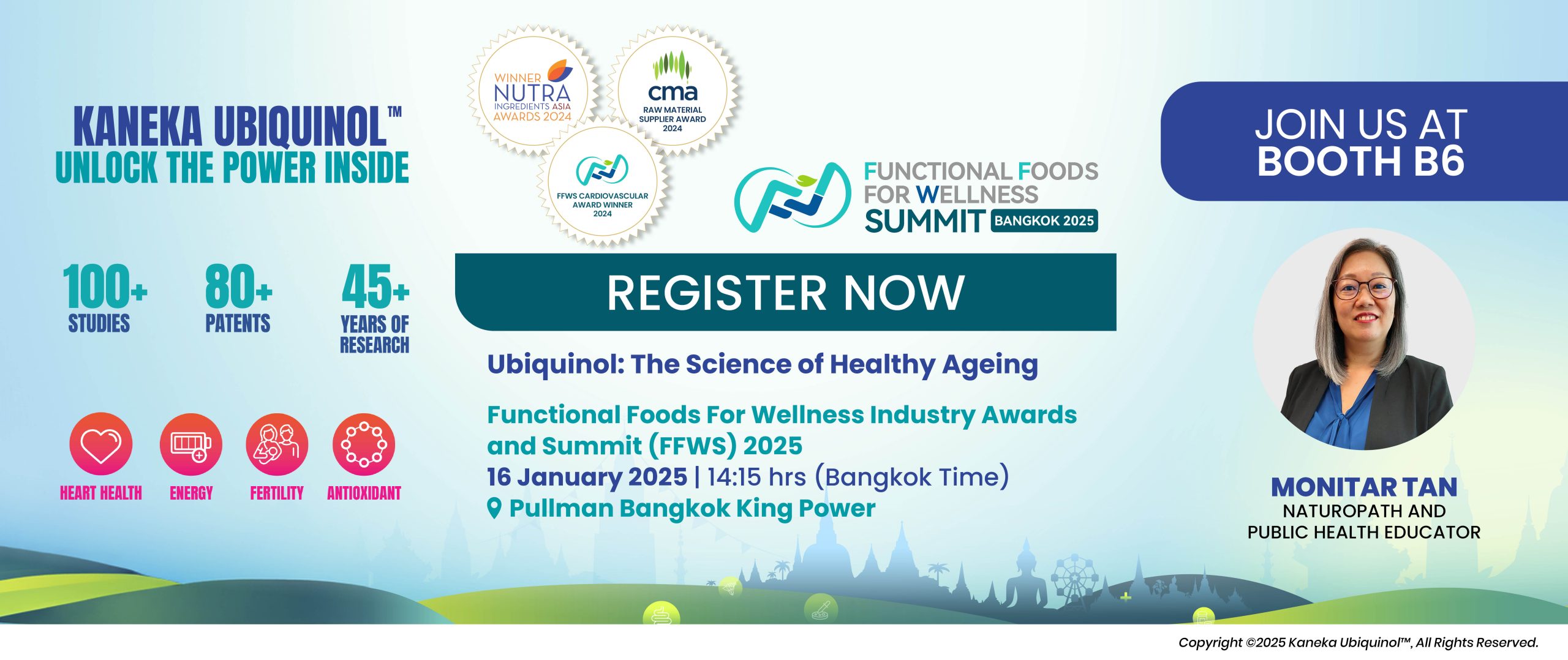
Kaneka Ubiquinol™ at Functional Foods for Wellness Industry Awards and Summit, #FFWS2025
Jan 2025Category: Ageing, Antioxidants, Awards, cardiovascular health, Conference, Conferences, Energy, Fatigue, FFWS2025, Health, Health Industry, healthy ageing, Kaneka, Menopause, Mitochondrial health, Nutrition, Ubiquinol, VitaminsRead More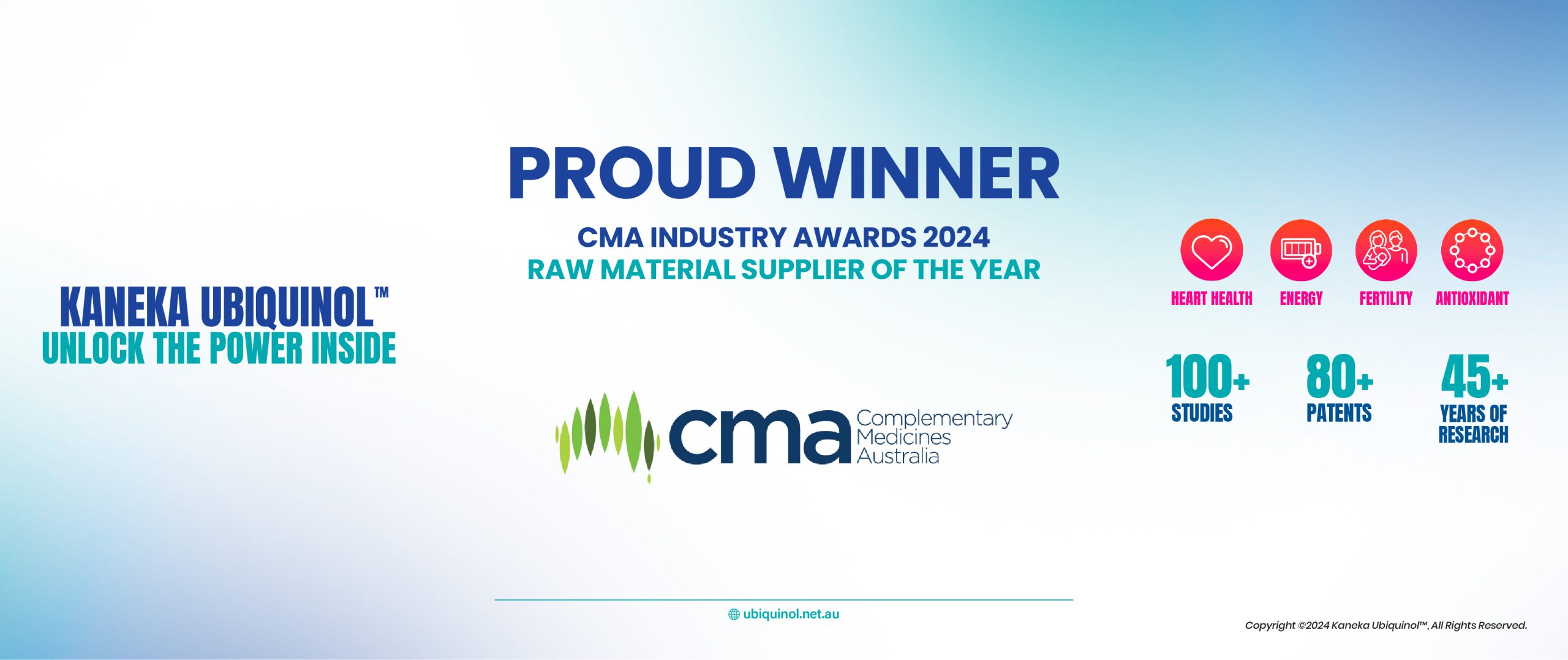
Kaneka Ubiquinol Wins Prestigious Complementary Medicines Raw Material Supplier of the Year Award 2024
Dec 2024Category: Ageing, Awards, cardiovascular health, complementary medicine, Conference, Conferences, Endurance, Energy, Fatigue, Fertility, Fitness, Health, Health Industry, healthy ageing, Heart, Immunity, In The News, Kaneka, Lungs, Memory, Mitochondrial health, Nutrition, Online, Stress, Ubiquinol, Vitamins, wellnessRead More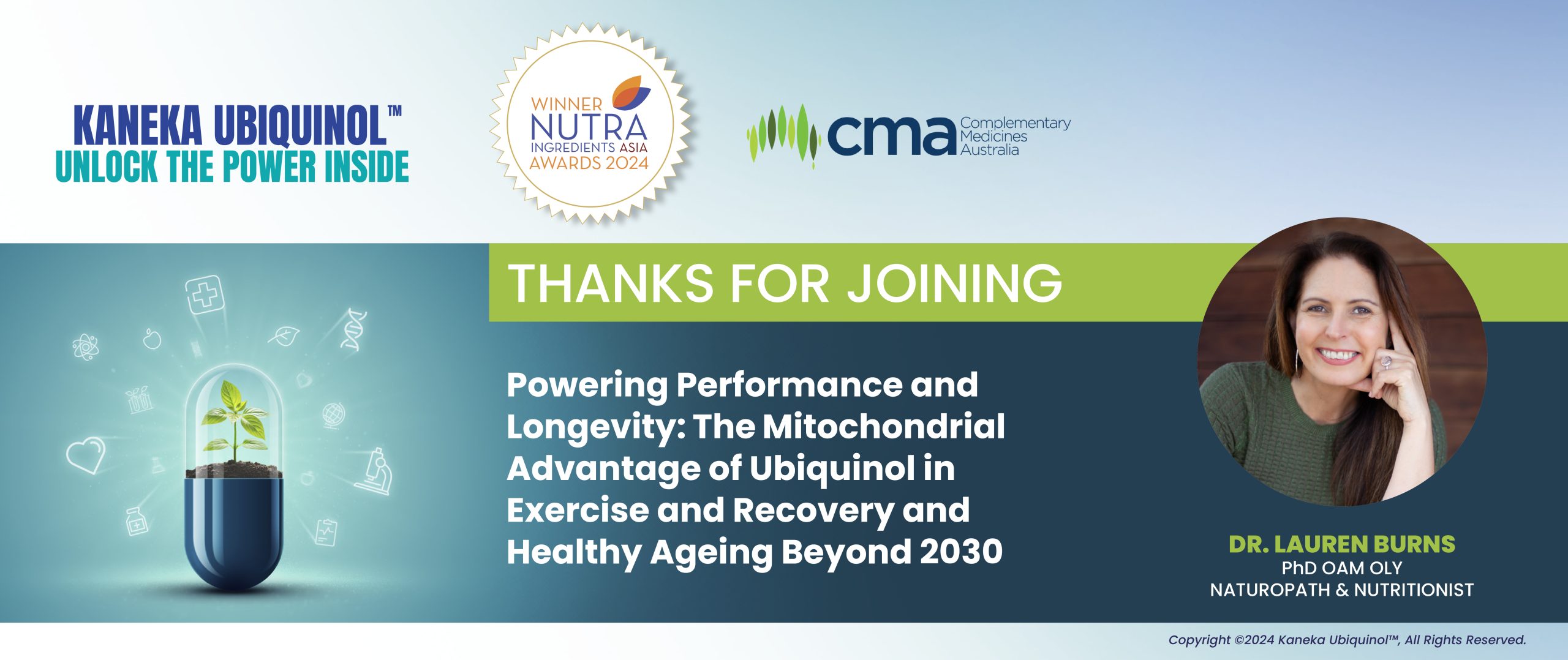
“Powering Performance and Longevity: Kaneka Ubiquinol™ at the CMA Annual Conference 2024”
Nov 2024Category: Ageing, Antioxidants, Awards, cardiovascular health, chronic fatigue syndrome, complementary medicine, Conference, Conferences, Endurance, Energy, Fatigue, Fertility, Fitness, Health, Health Industry, healthy ageing, Heart, In The News, Kaneka, Mitochondrial health, Online, Ubiquinol, VitaminsRead More
Natural Health Product Innovation Expo 2024
Nov 2024Category: Ageing, Antioxidants, cardiovascular health, Cholesterol, chronic fatigue syndrome, Conference, Conferences, Endurance, Energy, Fatigue, Fertility, Fitness, Health, Health Industry, healthy ageing, Heart, Kaneka, Menopause, Mitochondrial health, NHNZ, Nutrition, Stress, Ubiquinol, Vitamins, wellnessRead More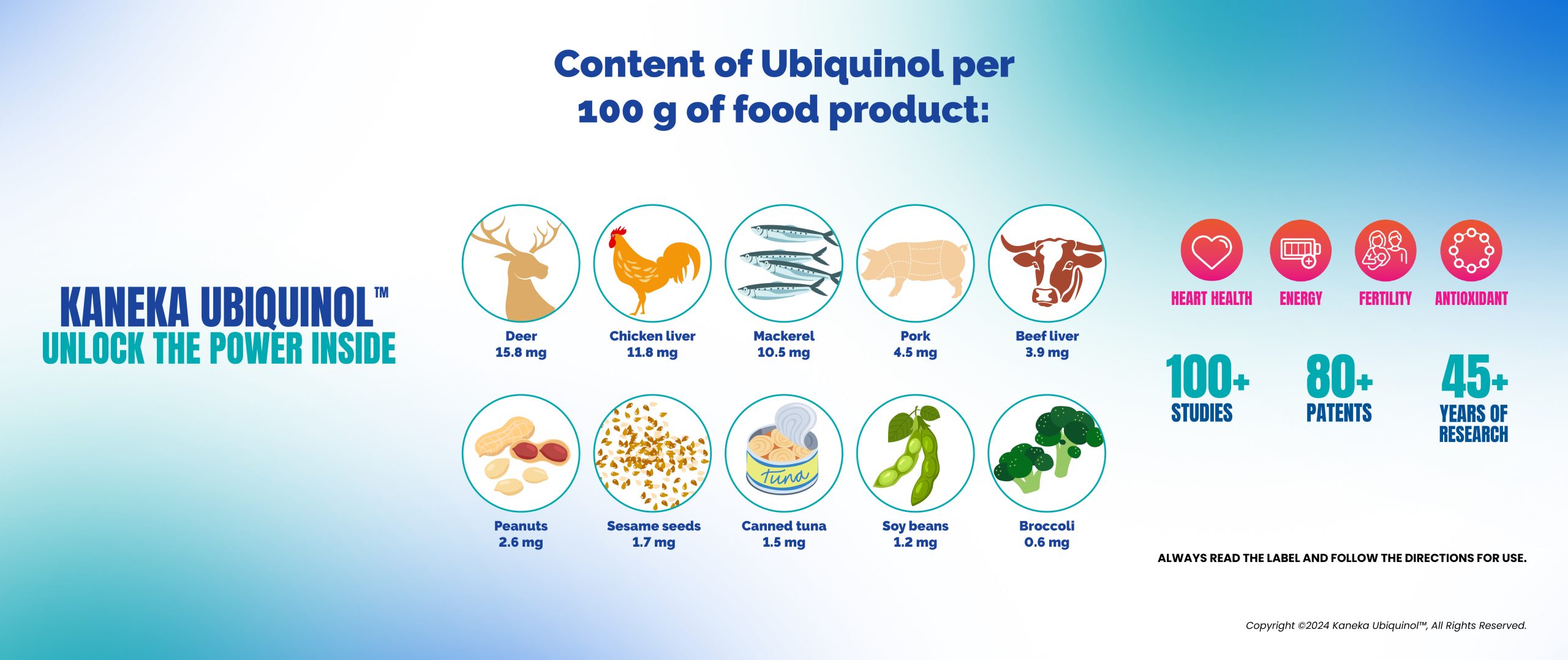
Ubiquinol: The Overlooked Nutrient for Vegans and Vegetarians
Oct 2024Category: Ageing, Antioxidants, Cholesterol, complementary medicine, Endurance, Energy, Fatigue, Fitness, Health, Health Industry, healthy ageing, Heart, Mitochondrial health, Nutrition, Stress, Ubiquinol, vitafoods, Vitamins, wellnessRead More
Investigating the Application of Ubiquinol in Mitochondrial Function
Oct 2024Category: Ageing, Antioxidants, cardiovascular health, Cholesterol, chronic fatigue syndrome, Endurance, Energy, Fatigue, Fertility, Fitness, Flu, Health, Health Industry, healthy ageing, Heart, Immunity, In The News, Kaneka, long covid, Lungs, Memory, Menopause, Mitochondrial health, myalgic encephalomyelitis, Nutrition, post pandemic, Stress, Ubiquinol, Vitamins, wellnessRead More
Kaneka Ubiquinol™ at VitaFoods Asia 2024, Bangkok
Sep 2024Category: Ageing, Antioxidants, Awards, cardiovascular health, Cholesterol, chronic fatigue syndrome, complementary medicine, Conference, Conferences, Endurance, Energy, Fatigue, Fertility, Fitness, Health, Health Industry, healthy ageing, Heart, Immunity, In The News, Kaneka, Memory, Menopause, Mitochondrial health, Nutrition, Stress, Ubiquinol, vitafoods, Vitamins, wellnessRead More